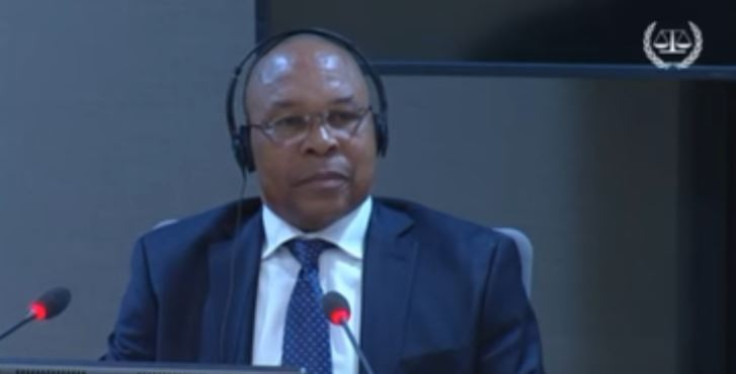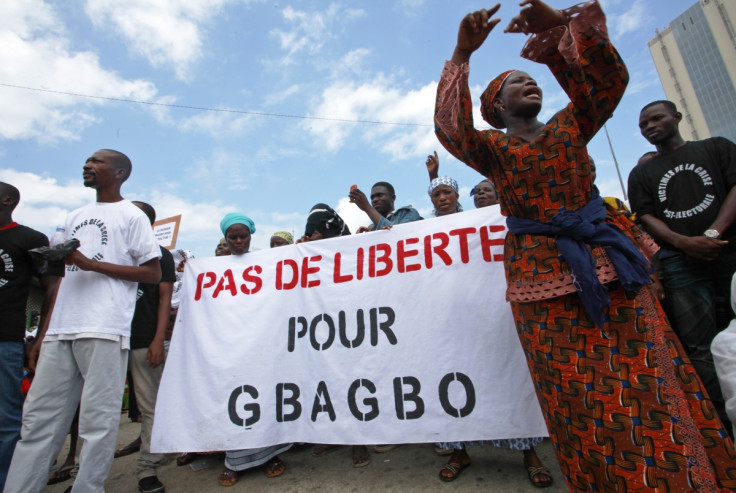Key witnesses in Laurent Gbagbo's ICC war crimes trial quizzed about security forces training
Former Ivory Coast president faces charges of war crimes and crimes against humanity.

The International Criminal Court (ICC) trial of former Côte d'Ivoire (Ivory Coast) president Laurent Gbagbo and former Ivorian politician Charles Blé Goudé resumed on 27 March after a week's suspension, with the testimony of key elements of the security forces.
Ivory Coast's president since 2000, Gbagbo pushed his once-thriving nation to the brink of civil war after refusing to accept election defeat to rival Alassane Ouattara in the November 2010 presidential run-off. Gbagbo, whose refusal to leave office led to an armed conflict during which serious human rights violations were committed by both sides, was the first ex-head of state to go on trial at the ICC for crimes against humanity linked to the violence that followed the poll.
According to the ICC, Gbagbo is accused of having committed four counts of crimes against humanity in Abidjan, jointly with members of his inner circle and through members of the pro-Gbagbo forces. He is also accused of ordering, soliciting and inducing the commission of these crimes. These include: murder, rape, inhumane acts including attempted murder and persecution. He denies all the charges.
As the duo's trial resumed on Monday, General Georges Guiai Bi Poin, former commander of the Security Operations Command Center (CECOS) and one of the key witnesses in the case, was called in by the prosecutor to testify. An elite paramilitary police force, CECOS was established in 2005 to "fight organised and other serious crime".
One of the strong men of the Gbagbo regime, Guiai Bi Poin, was arrested in August 2011 as part of an investigation into a mass grave and charged with economic crimes, before he was released in December that year.
During the interrogatory, ICC prosecutor Melissa Pack spoke of the "double role" of the now-retired general, according to RFI. Pack probed Guiai Bi Poin about his role as the chief of the Gendarmerie school, and why new troops had been formed just before the 2010 election.

While RFI reports Guiai Bi Poin did not comment about the date of the training of the new troops, he declared the CECOS was "an intervention reserve for the supreme command".
The general's testimony came after that of Edouard Tiapé Kassaraté, former chief of the Gendarmerie force – another key witness. Today Ivory Coast Ambassador to Senegal, Tiapé Kassaraté said he did not remember a decree drafted on 14 November 2010 requisitioning the armed forces. According to the witness, who claimed to have only heard of the redeployment of the security forces on TV, he said the decree only legalised a situation in progress for years.
Following this, the president of the court reminded Tiapé Kassaraté that he was liable to prosecution and could face five years in prison for false testimony.
While the trial is important for Cote d'Ivoire (Ivory Coast), where there has been no accountability to date for the post-electoral violence, Param-Preet Singh, senior counsel at Human Rights Watch (HRW), said the proceedings also send a strong message to "people who think they can rely on their official position to escape justice".
More than 3,000 were killed by the end of the conflict, over 150 women were raped or gang-raped, people faced summary executions and villages were burned to the ground, according to HRW.
© Copyright IBTimes 2024. All rights reserved.






